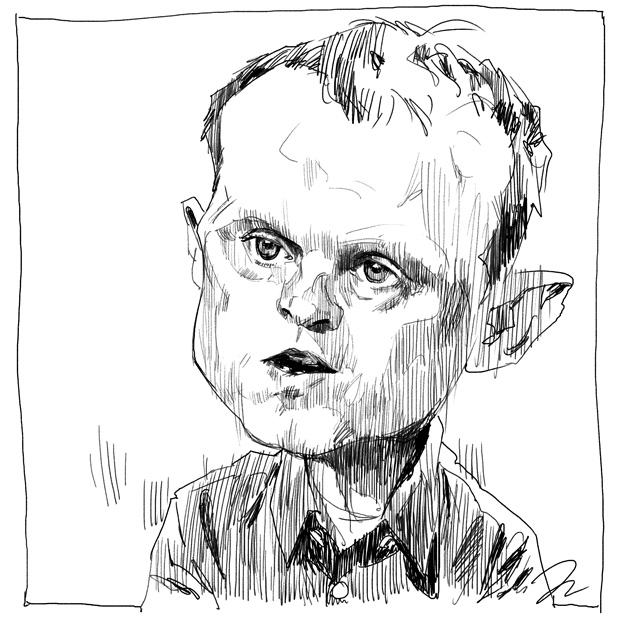Coronavirus won’t kill the culture wars
Even in the face of this crisis, the identitarians are doubling down.

In early March, more than 300 employees at the Guardian signed an open letter to the editor Katharine Viner to protest against the publication of supposedly ‘anti-trans’ material. The catalyst was Suzanne Moore’s article on the deplatforming of Professor Selina Todd at Oxford University, an action that had been justified by the organisers on the grounds that Todd had previously spoken at a meeting of Woman’s Place UK (a group that campaigns for separate spaces and services for women). The signatories to the open letter argued that by publishing Moore’s views, the Guardian was no longer ‘a safe and welcoming workplace for trans and non-binary people’. To complain to one’s employer about feeling ‘unsafe’ has become a standard manoeuvre among those who have little tolerance for the opinions of others.
Many are now asking whether in the midst of a global pandemic – in which the notion of ‘safety’ has been temporarily restored to its original definition – such tactics can still be effective. The problem has never been with the cry-bullies of the social-justice movement who disingenuously claim that their safety is compromised by alternative viewpoints, but rather with those in authority who capitulate to their demands. When activists called for the removal of the statue of colonialist Cecil Rhodes at Oriel College, Oxford, part of their strategy was to insist that it was a form of ‘violence’ to expect black students to walk in its vicinity. The statue remains in place because the university authorities had the courage not to defer to this kind of entitlement. The same cannot be said for the plaques commemorating the visit of King Leopold II of Belgium to Queen Mary University in London, which were removed because of his tyrannical reign in the Congo after a student outcry about 130 years too late.
It should go without saying that nobody’s safety is being threatened by atrocities committed by long-dead historical figures. The language of physical harm is a rhetorical device intended to strengthen the case for ideological submission. More generally, the lexicon of social justice has a tendency to reduce individuals to their corporeal substance; we hear this in phrases such as ‘female bodies’, ‘black bodies’ or ‘queer bodies’, a strangely dehumanising choice of words. Similarly, those who challenge the content of LGBT sex education at schools are accused of ‘erasing gay people’ and somehow denying their very existence. Even the phrase ‘brothers and sisters’ can be reframed as genocidal. As one activist put it, ‘When you say “brothers and sisters”, you’re erasing non-binary, two-spirit, and gender-expansive trans folks who live beyond the binary. Constantly being erased is exhausting.’
With the coronavirus death toll rising, and the NHS struggling to cope with the rate of infections, claims that mainstream opinions are tantamount to ‘erasure’, ‘violence’ and a threat to people’s ‘safety’ now seem more absurd than ever. Leftist identitarians who have spent the past five years having conniptions brought on by fantasies that we are living in a state of near-fascism, and insisting that thousands of relatively affluent people are nonetheless oppressed, are now being confronted with a glimmer of actual hardship. Might it be the case that intersectional identity politics will be fatally undermined by the spread of Covid-19?
Much as I would like to believe that the pandemic will put matters into perspective, I am also aware that the agents of the culture war are already well inoculated against the concerns of material reality. Even as governments around the world are imposing draconian restrictions to citizens’ liberty in order to curtail the spread of the virus, social-justice activists are busy claiming the impact will be most keenly felt by disenfranchised groups. An article in Salon declares that the pandemic has been accelerated by ‘white male privilege’ and the ‘racist white voters’ responsible for the Trump administration. A writer for Vice bewails the postponement of trans surgery in favour of coronavirus victims. Rolling Stone explains ‘how social distancing could lead to a spike in white nationalism’. CNN criticises Donald Trump’s coronavirus ‘task force’ for its lack of diversity. Australian senator Mehreen Faruqi calls it ‘a gendered crisis’ that carries a ‘disproportionate risk’ to women, in spite of the fact that men are statistically more likely to die. Alexandria Ocasio-Cortez claims that deaths are spiking in ethnic-minority communities, and that ‘Covid relief should be drafted with a lens of reparations’.
Closer to home, the Metropolitan Police are urging members of the public to be on the lookout for ‘hate crime related to the Covid-19 pandemic’, and academics at Queen Mary University are calling for ‘an intersectional view of the coronavirus pandemic’. Not to be outdone, the African-American Policy Forum has just hosted a webinar to explore ‘the intersectional failures that Covid lays bare’. One participant, Professor Dorothy Roberts, even went so far as to argue that the spread of the virus had been caused by ‘the current racial-capitalist system’ and that prisons – with their disproportionate number of black inmates – should therefore be abolished. It has become all too apparent that it would take an apocalyptic event of Biblical proportions to put an end to the culture war, and even then there would always be commentators available to denounce the plague of locusts for their heteronormativity.
This widespread reassertion of the values of intersectional activism is just one example of how the coronavirus pandemic is being interpreted as an opportunity to win ideological battles. Depending on who you read, the crisis either vindicates socialism or advances the case for capitalism. It either proves that the European Union is a failed enterprise or that Brexit was a mistake and must now be reversed. It will either bring us together and demonstrate the inherent benevolence of humanity, or drive us apart and expose us as the self-interested creatures we always were. Somehow, this disease conveniently ends up proving whichever political or philosophical point we’d prefer to make.
It is in our nature to see confirmation of our existing biases in the world around us. This is why, for the time being at least, we would be well advised to hold back on our prognostications. I make no secret of my hope that the cult of social justice will lose its stranglehold on our media, our arts, and our major educational, political and law-enforcement institutions. In a post-coronavirus world, is it conceivable that English faculties at top universities would yield to student demands to ‘decolonise the curriculum’ of white male authors? Or that thousands of British citizens would be investigated by the police for ‘non-crime’? Or that art and literature would be judged primarily on the basis of their fealty to identitarian bugbears?
Although institutionally powerful, the agents of social justice have always been in the minority, and have been indulged largely because of their intimidatory tactics. I would like to think that in the wake of an actual crisis their more hysterical grievances will be treated with the insouciance they deserve, and that this seemingly interminable culture war will draw to a close. But in this respect I am probably as guilty as everyone else of assuming that the effects of the pandemic will confirm the views I have long advocated. Certainly in the short term, the clout of these culture warriors will be diminished. But I fear that it is wishful thinking to suppose that they won’t find a way to turn this crisis to their advantage, and emerge more determined and vitriolic and authoritarian than ever before.
I hope I’m wrong.
Andrew Doyle is a stand-up comedian and spiked columnist.
To enquire about republishing spiked’s content, a right to reply or to request a correction, please contact the managing editor, Viv Regan.










Comments
Want to join the conversation?
Only spiked supporters and patrons, who donate regularly to us, can comment on our articles.